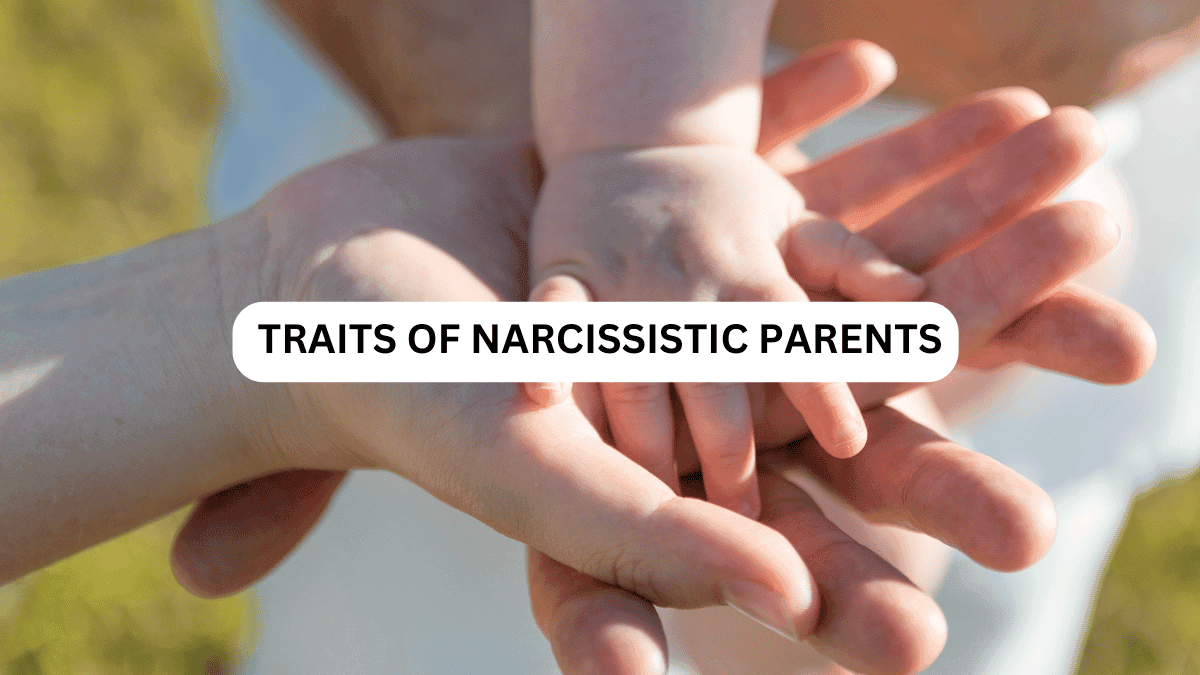5 Negative Traits of Narcissistic Parents: Breaking the Cycle of Childhood Trauma
Traits of Narcissistic Parents
Narcissistic parenting can have a profoundly negative impact on a child’s mental and emotional development. Often, the damage inflicted by a narcissistic parent is carried into adulthood, influencing relationships, self-esteem, and mental health. This article will explore five harmful traits commonly found in narcissistic parents and offer steps to break the cycle of childhood trauma.
Related: Do Boundaries Really Work with Narcissists? Learn Effective Strategies
Related: Why Narcissists Struggle with Empathy: Understanding the Science Behind their Behavior
Related: Understanding Why Narcissists Create Chaos
Related: You Must Protect Yourself from Their Emotional Manipulation, Learn Strategies
1. Emotional Manipulation
Narcissistic parents often use emotional manipulation to control their children. This can include guilt-tripping, shaming, or leveraging affection to get what they want. The child learns that their worth is dependent on pleasing the parent, which can lead to feelings of insecurity and confusion.
Impact:
This manipulation creates a distorted sense of self-worth in the child, causing them to grow up feeling inadequate. As adults, they may struggle to form healthy relationships, often becoming codependent or overly reliant on validation from others.
Solution:
Breaking free from emotional manipulation involves understanding the pattern of behavior. Therapy, setting boundaries, and practicing self-love are crucial for healing. Relearning self-worth, independent of external validation, helps individuals overcome the control of narcissistic parents.
2. Lack of Empathy
Narcissistic parents often show a distinct lack of empathy, being emotionally unavailable when their children need them most. These parents may dismiss their child’s emotions, invalidate their feelings, or shift the focus back to themselves.
Impact:
Children of narcissists grow up feeling unseen and unheard, which can lead to issues such as emotional detachment, difficulty expressing feelings, and trouble forming close connections. These children may struggle with their own ability to empathize as adults.
Solution:
Recognizing the emotional void created by the lack of empathy is a crucial step toward healing. Seeking therapy, journaling about emotions, and practicing vulnerability with trusted loved ones can help rebuild emotional connections and empathy in adulthood.
3. Conditional Love
In a narcissistic household, love is often conditional. A child is praised only when they fulfill the parent’s needs or achieve something that reflects positively on the parent. This teaches the child that love must be earned, not freely given.
Impact:
Growing up with conditional love often results in perfectionism, people-pleasing, and constant striving for approval. As adults, these individuals may fear rejection and struggle with self-acceptance, believing they are never good enough.
Solution:
Breaking free from the need to earn love involves self-compassion and understanding that unconditional love is a right, not a reward. Self-acceptance practices, therapy, and surrounding oneself with supportive people who offer unconditional love are key to overcoming this mindset.
4. Overcontrol and Micromanagement
Narcissistic parents often overcontrol their children’s lives, micromanaging everything from their choices to their daily activities. This control is typically driven by the parent’s need for dominance and a desire to mold the child into a reflection of themselves.
Impact:
Children raised under constant control often struggle with autonomy and decision-making in adulthood. They may become overly dependent on others for direction, have difficulty asserting themselves, or rebel against any form of authority.
Solution:
Developing independence and self-confidence is essential for breaking the cycle of overcontrol. This involves learning to trust oneself, making decisions without external validation, and setting boundaries with controlling figures.
5. Favoritism and Comparison
Many narcissistic parents practice favoritism among their children, comparing them to each other or to other people’s children. This tactic is used to keep the children striving for their approval while sowing seeds of competition and resentment.
Impact:
Favoritism can lead to sibling rivalry, low self-esteem, and feelings of inadequacy in the child who isn’t favored. This often results in deep-seated resentment and damaged sibling relationships that carry into adulthood.
Solution:
Healing from favoritism requires understanding that the child’s worth is not defined by comparison. Rebuilding self-esteem through therapy, self-reflection, and positive affirmations can help overcome the scars of favoritism. Reconnecting with siblings outside of the parental dynamic can also help rebuild healthy relationships.
Common Traits of Narcissistic Parents and Their Impact on Children
| Trait | Impact on Children |
|---|---|
| Emotional Manipulation | Leads to insecurity, confusion, and codependency in relationships. |
| Lack of Empathy | Creates emotional detachment, difficulty forming connections, and stunted emotional growth. |
| Conditional Love | Promotes perfectionism, fear of rejection, and low self-acceptance. |
| Overcontrol | Results in difficulty with autonomy, decision-making, and personal boundaries. |
| Favoritism | Leads to sibling rivalry, low self-esteem, and damaged relationships. |
Traits of Narcissistic Parents Traits of Narcissistic Parents Traits of Narcissistic Parents Traits of Narcissistic Parents Traits of Narcissistic Parents Traits of Narcissistic Parents Traits of Narcissistic Parents Traits of Narcissistic Parents Traits of Narcissistic Parents








